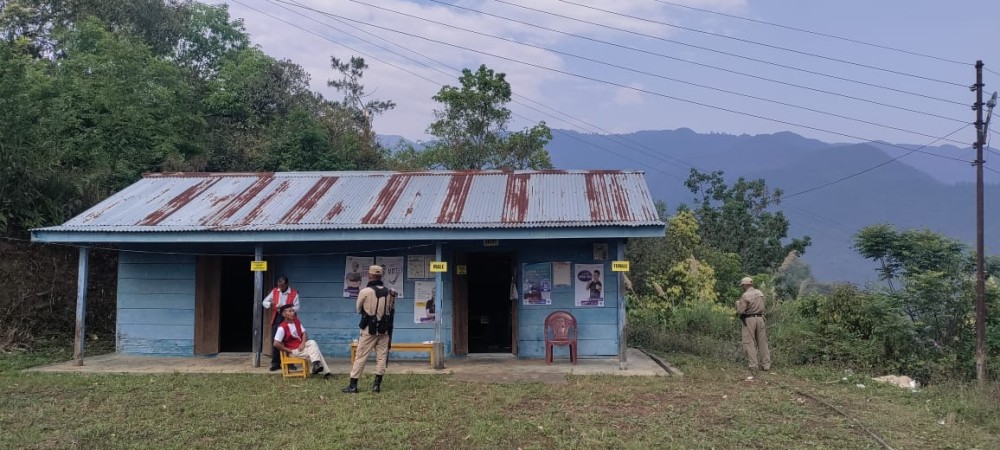Polling station at Langzanger Village under Kiphire district. Morung Photo

TUENSANG, APRIL 19 (MExN): The Eastern Nagaland People’s Organization (ENPO) has responded to the show-cause notice issued by the office of the Chief Electoral Officer (CEO) Nagaland on April 18 asking why action should not be initiated against them as per Sub-Section (1) of Section 171C of the Indian Penal Code, 1860.
The show-cause notice was issued in reaction to a public notice issued by the Eastern Nagaland Public Emergency Control Room on April 18 declaring an indefinite total shut down in Eastern Nagaland jurisdiction with effect from 6 PM onwards.
The CEO Nagaland said the public notice “attempts to use undue influence at elections by interfering with the free exercise of those residing in Eastern Nagaland areas to vote at the General Elections to the Lok Sabha 2024 that will be held on April 19, 2024.”
In its response, the ENPO maintained that the main goal of the public notice was to “reduce the possibility of disturbances in the Eastern Nagaland region,” and to deter anti-social elements from creating law and order situation in the region.
It maintained that Eastern Nagaland region is presently under ‘Public Emergency’ and the shutdown is a voluntary initiative taken by the people of Eastern Nagaland region. It mentioned that in a letter to the Election Commission of India, dated April 1, 2024, it had already communicated the intentions of the Eastern Nagaland people to abstain from participating in the Lok Sabha election 2024. “This decision was made in light of the prevailing circumstances and sentiments of the people,” it said.
The ENPO also claimed that the notice was issued at maintaining the law and order situation in the region and to ensure the safety and well-being of its residents. It also asserted that sub-section (1) of Section 171 (C) is not applicable in this context as no offence related to undue influence at any election has been committed by the organization of the Eastern Nagaland people.
Therefore, given that the shutdown was a voluntary initiative by the people, the ENPO asserted that there was “no question of coercion or enforcement” by the organization or any other authority. The ENPO also emphasized that it does not possess any mechanism to enforce its resolutions or orders. “We operate solely on the basis of voluntary participation and consensus among the Eastern Nagaland people,” it went on to state.
“Lastly, if there has been any misunderstanding or misinterpretation of our actions, we regret and assure you of our full cooperation. We are committed to providing any further clarification or information as may be required by your authority,” the ENPO stated.



